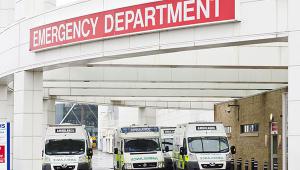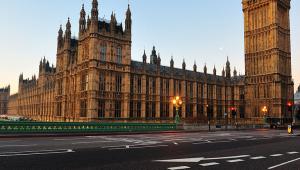The Department of Health’s response to the Mid Staffordshire public inquiry is yet another milestone in a year during which the safety and dignity of patients in the NHS has been under the spotlight as never before.
Underlying the headline proposals for staffing and safety transparency, the duty of candour, and a new programme to spread safety skills is a recognition that better quality care will require a culture that uses transparency, openness and complaints as drivers for improvement, rather than fearing them.
It was the right decision to ask NICE to draw up evidence-based guidelines on what level of nurse staffing is needed for safe care, while publishing numbers at each hospital trust quarterly. The suggested alternative – mandatory minimum staffing levels – might have failed to reflect how different wards and different patients have different needs.
For once, the pressing issue of NHS finance has taken a back seat: unusually, the Department of Health has provided no cost figures or estimates alongside these proposals. It is possible that the direct costs of implementing the response will be quite small – how much does it cost to be candid? It would be nice to know.
The real costs are likely to be incurred by trusts that feel they have to increase their staffing levels. The recent case of Queen Elizabeth Hospital Kings Lynn NHS Foundation Trust exemplified this when a CQC inspection resulted in the trust hiring more staff. Several trusts have already done this and more may follow.
The word on the street is that in the current climate Trusts will prioritise quality over finance. If faced with competing letters from Monitor about not incurring extra expenditure and CQC demanding staffing increases, the board and chief executive may prefer the wrath of Monitor to that of CQC, with all the public and media criticism that may follow.
NHS finances are getting tighter. More trusts are getting into or are on the brink of financial trouble. And there are competing claims for the money that is available, with GPs seeking more investment following a period of decline and the government committing to transferring the best part of £3.8 billion to social services. Squaring the quality and finance agendas is going to become harder. Something is going to have to give.
Quite how the relative priorities are going to be decided is unclear. The current drift is towards more centralisation and away from the Lansley model of politicians disengaging. At the same time the central institutions are more fragmented, with responsibilities divided between six organisations where only a decade ago it was one. And there is no regional tier to hold the ring.
There is a risk that taken together these announcements will become a force for centralisation, shifting responsibility and accountability away from the local bodies where the ultimate duty to ensure acceptable care should lie. Using transparency to improve standards of care won’t work if it is not clear who is responsible for the outcomes that are revealed.
As these changes take effect, the government needs to make clear where accountability should lie, and to make sure its own responsibilities are informed by a sense of the dangers of excessively top-down management.












